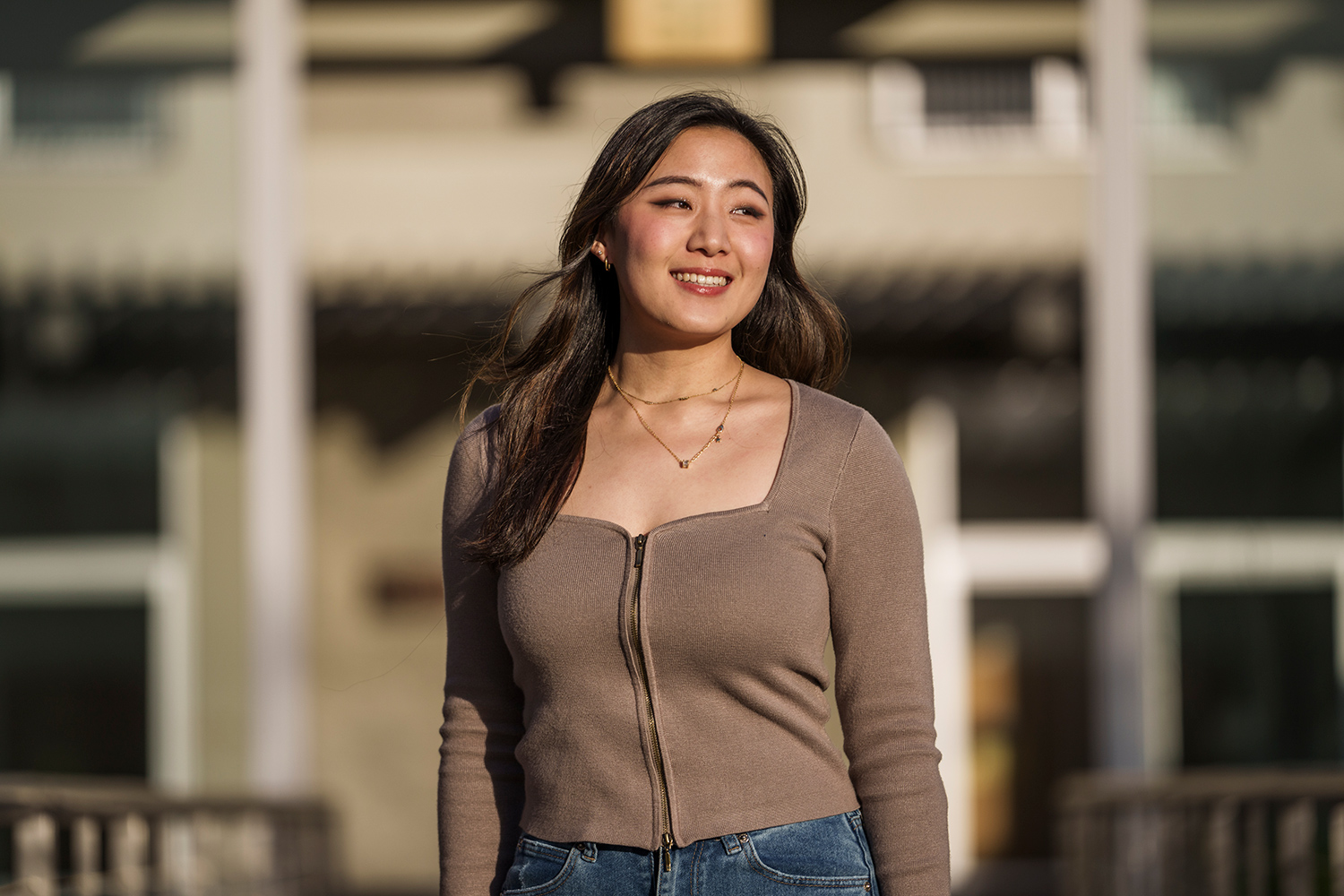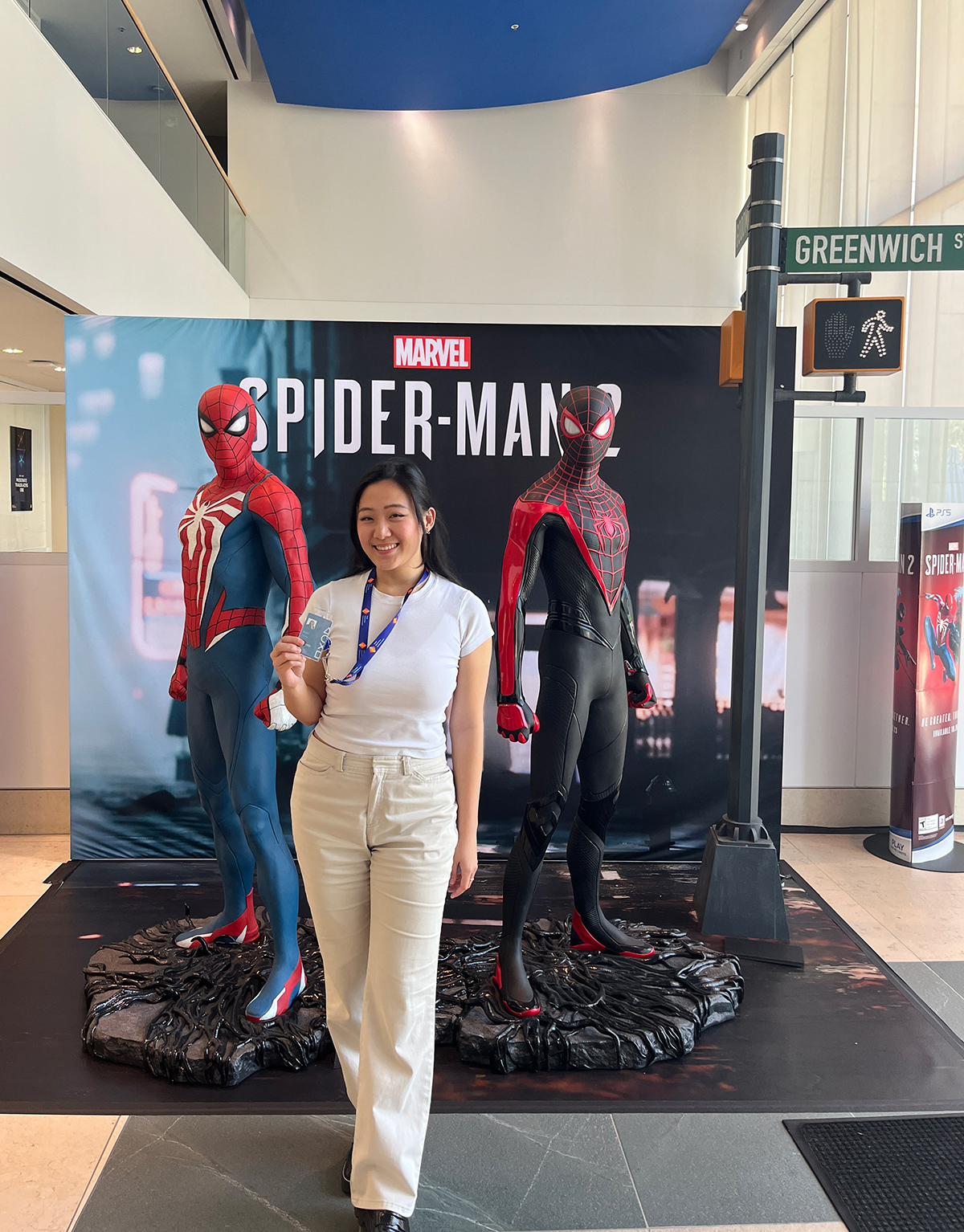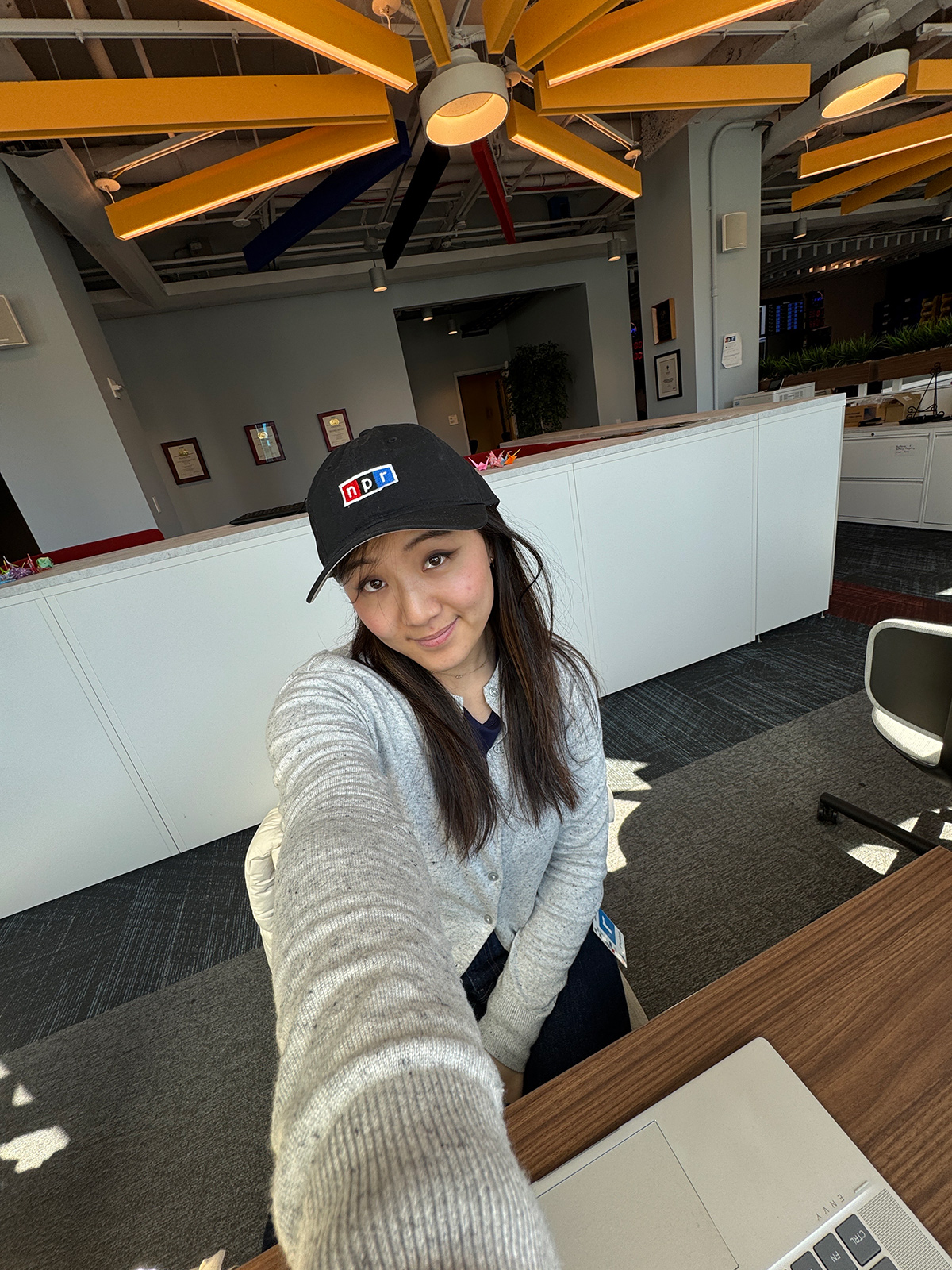
By Andrew Cohen
The concept of fate doesn’t get much attention in law school. But when the chance arose to spend a semester with National Public Radio (NPR), 2L Angela Chung couldn’t ignore the possibility.
She’s been listening to NPR’s “Up First” since high school as her daily news download. And before law school, her research on the effects of social media misinformation and disinformation on people of color sparked a passion for improving the quality and accessibility of information.
“I entered law school specifically because I want to be involved in the decision-making of news media and social media companies amid the always-changing dynamics of technology and politics,” Chung explains.
As a general counsel extern at NPR — an opportunity realized through UC Berkeley Law’s popular Field Placement Program — Chung has learned quickly about the changing aspects of the organization and how it addresses legal risks. She works on business contracts, reviews digital content before publication, researches and writes memos on artificial intelligence (AI) and intellectual property (IP), reviews articles for potential defamation, and assesses constitutional protections for journalists.
The role requires a flexible and broad understanding of all these issues, and NPR’s mission — to make a more informed public — clicked instantly with Chung’s desire to advance a digital media world that centers free, creative, and safe expression.
“The law is used to reflect and shape out the values we want to communicate to one another,” she says. “Across free speech, antitrust, IP, data privacy, and more, we all have a duty to dig deep and consider: What do we care about, and how do we emphasize that with the law? It’s a mighty task to strike the right balance across protecting the public, sustaining online autonomy, and upholding free speech, but it has to be done.”
A more realistic lens
Wanting to focus her career on elevating the health of online information ecosystems, Chung says it felt limiting at times watching the legal industry’s tendency to treat “media law” and “technology law” as separate from one another. Her work at NPR reinforces the notion that the way the public consumes and trusts news is no longer distinct from online content.

But this topical convergence posed unique challenges for Chung, as she juggled numerous legal issues at once.
“I’ve found that in-house lawyering requires proactive preparation for the changing frontiers of the law while also maintaining daily operations,” Chung says. “Contracts need to be written and pieces need to be published, but also AI policy needs to be created and regulatory issues need to be tracked closely.”
Last summer, she interned with Sony Interactive Entertainment, reviewing products and addressing legal risks in anticipation of a product launch. This required a broad understanding of current regulatory issues, contractual obligations, internal company policies — and the goals of the product teams. Chung worked largely on the launch of the PS5’s Welcome Hub that was released in September.
“I never could have imagined two years ago that I would spend my 1L summer at a gaming company, but taking that leap taught me so much about being in-house and juggling changing areas of tech law,” she says. “And getting deep into IP/tech law with no technical background would have been laughable to me a few years ago, but now I’ve gained greater confidence that I can produce high-quality work on unfamiliar topics.”
There are 102 UC Berkeley Law students taking part in the Field Placement Program this semester. The program provides students with vital hands-on experience and academic credit if they extern at a nonprofit or government agency, are directly supervised by an attorney, and do broadly defined legal work. The placements, either part-time or full-time, are in the San Francisco Bay Area, across the country, and around the world.
Broad reach
Rather than focusing on specific kinds of legal questions, she says the product counsel mindset requires flexibility and a sharp eye for legal issues across varying areas of law. Her work spanned across data privacy, online safety, international regulation, antitrust, accessibility, and more.

“Any potential legal advice and considerations needed to take into account the goals and vision of the product team itself,” she says. “I learned from this that effective in-house lawyering isn’t just about identifying problems and telling someone to fix them — it’s about prioritizing certain risks in ways that align closely with the business model and product goals. I’ve definitely brought this knowledge and mindset into my role with NPR.”
Her foray into media law was also unexpected.
“All I knew at the time was that I disliked book bans and cared about the accessibility of truthful knowledge, so I went all in absorbing as much as I could about First Amendment and traditional media law issues,” Chung says. “It just so happens that there’s a growing intersection between the traditional media and social media sectors, and my disparate interests merged right at NPR.”
Senior online editor at the California Law Review, president of Mass Media at Berkeley Law, and co-president of the school’s Asian Pacific American Law Student Association, Chung also competed in the Giles Sutherland Rich Moot Court competition and is active in the school’s Women in Tech Law and Intellectual Property Law Society groups. In and out of the classroom, she strives to be as plugged-in as possible to all the spaces that touch her interests.
Eager to forge a career working in areas that affect digital media and online ecosystems, Chung will join the San Francisco office of Wilson Sonsini Goodrich & Rosati as a summer associate in the firm’s Internet Strategy and Litigation practice group.
“In hindsight now, everything seems linked together,” she says. The greatest gift my past self gave me was knowing I didn’t have to limit myself to being just a ‘tech lawyer’ or ‘media lawyer.’ I can just be me, and that can take me so far.”